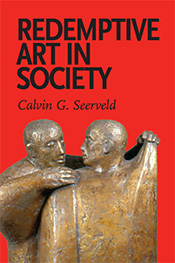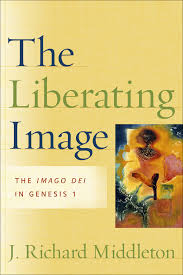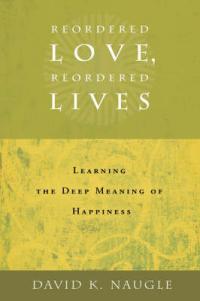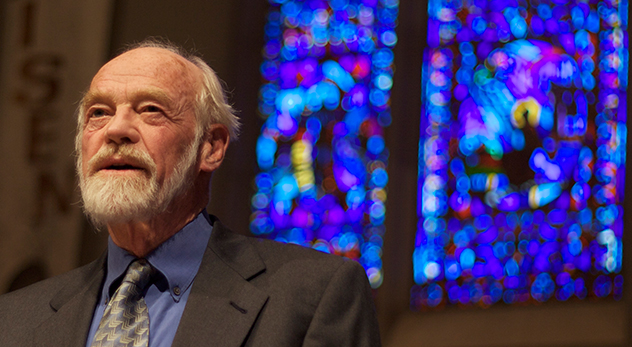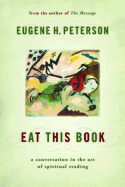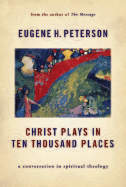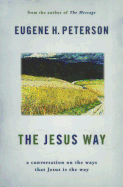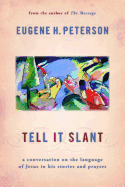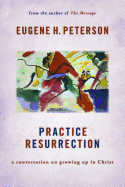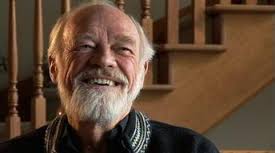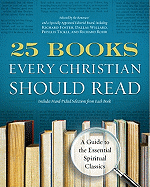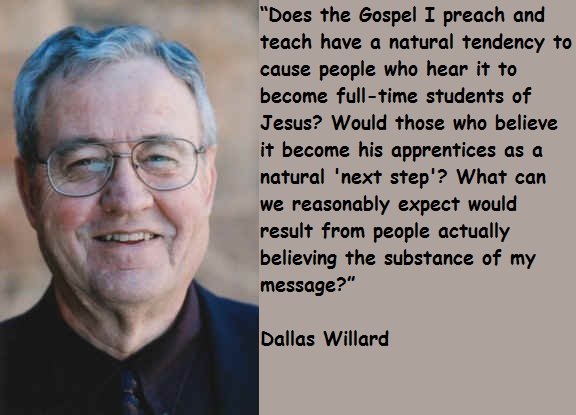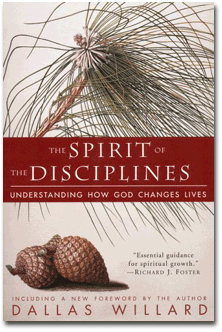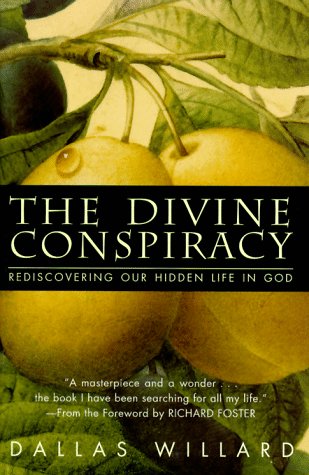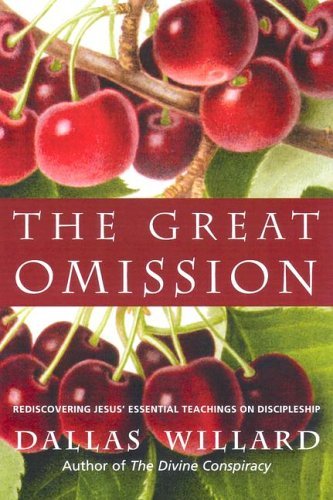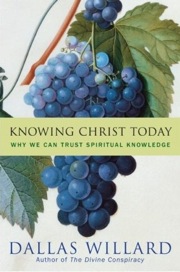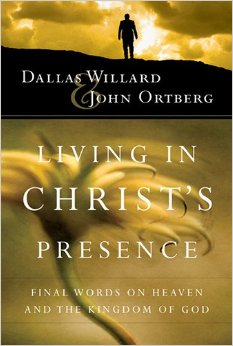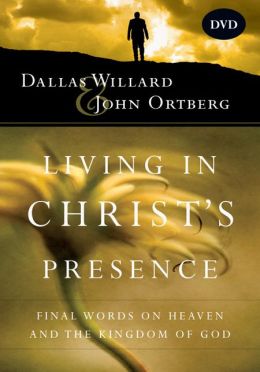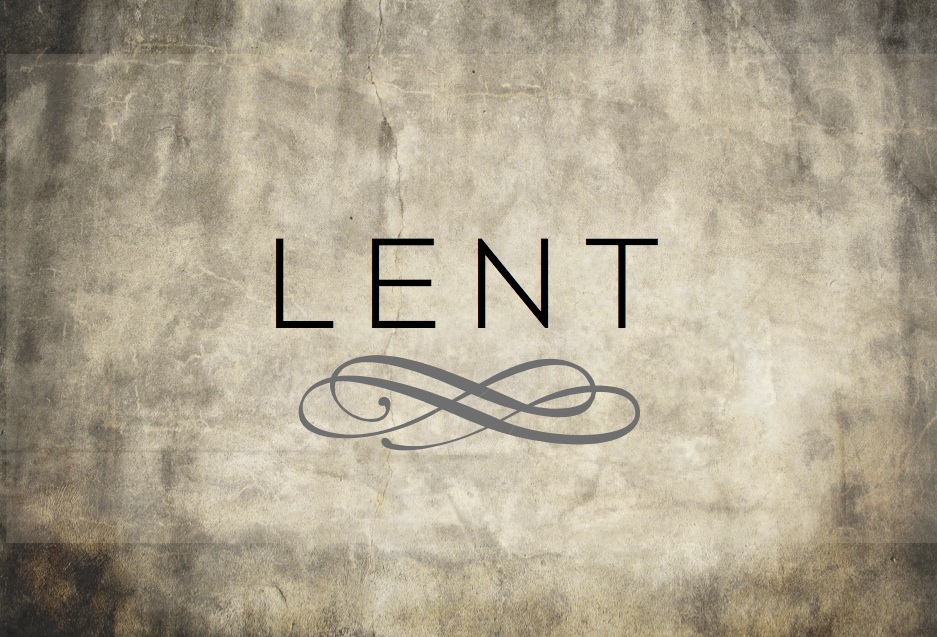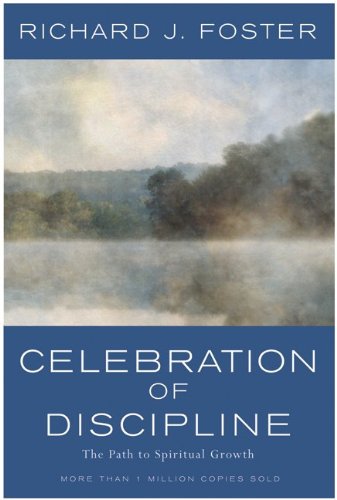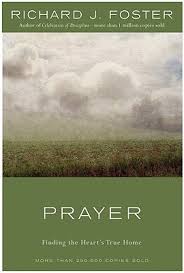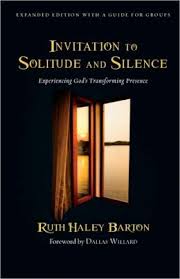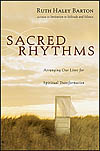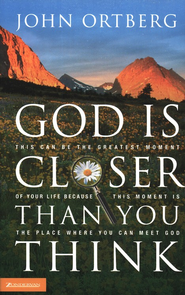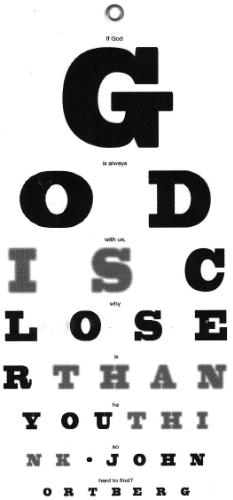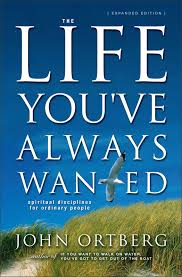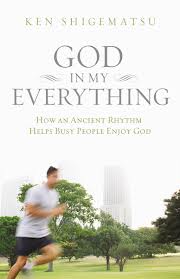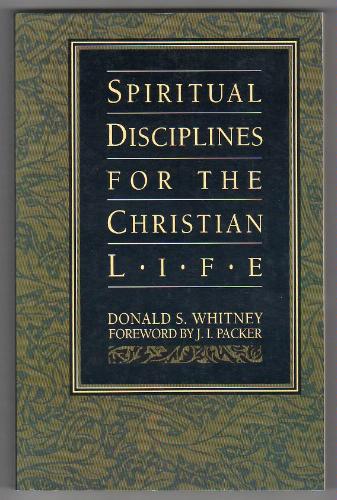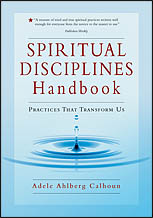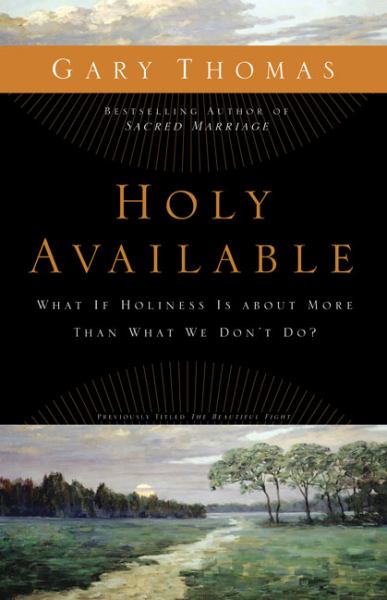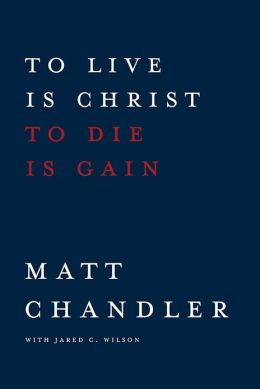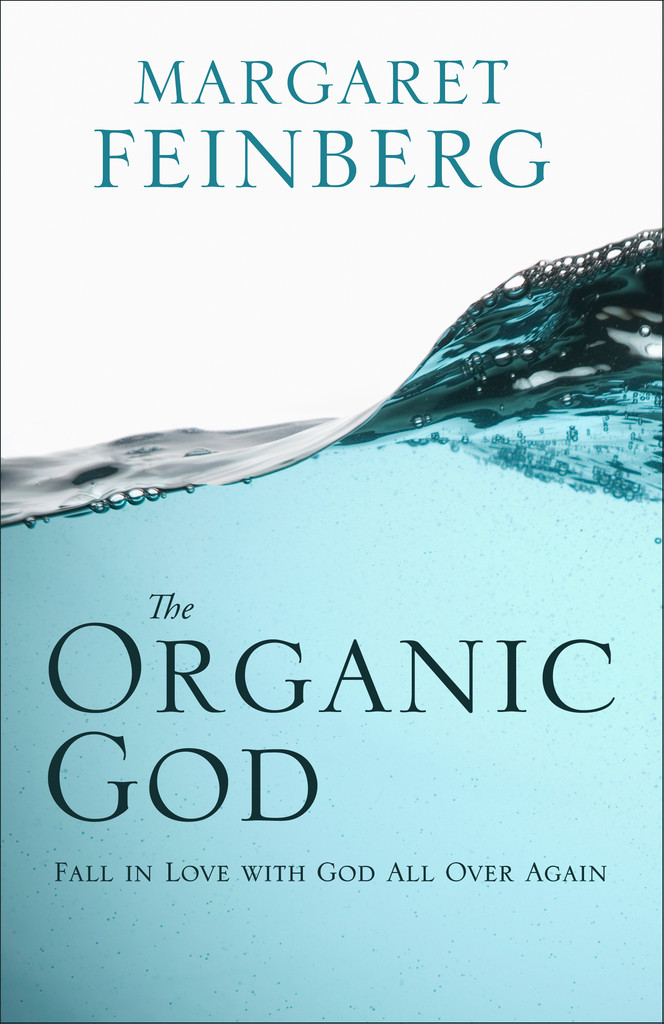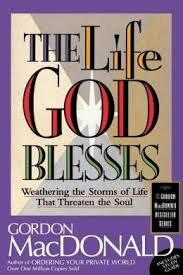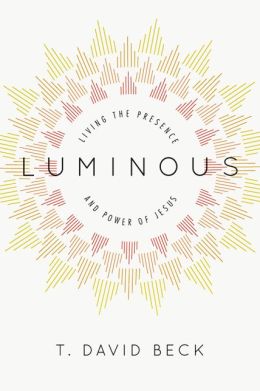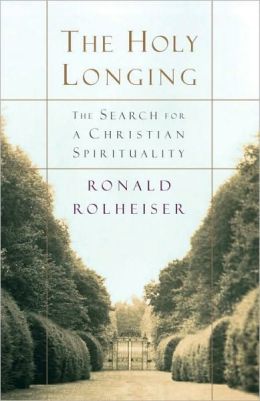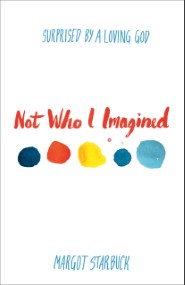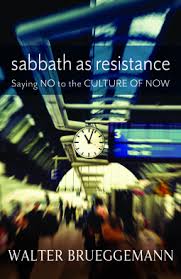Giving Blood: A Fresh Paradigm for Preaching Leonard Sweet (Zondervan; $22.99.) Our BookNotes sale price, $18.35
I have a friend, an engineer and businessman, who writes plays, funny, funny youth dramas, and he is the most witty person I know. One can hardly have a conversation with him (or a Bible study or committee meeting) without puns being blurted out. He thinks of them instinctively, and blurts them out shamelessly. He’s a wonderfully creative guy, good to be around, clever and fun, but he is truly gifted, extraordinarily so. One can’t keep up, even though a few try.
LEONARD SWEET
Author Leonard Sweet is like that. He can’t help himself. Is such a gift a joy or a burden? What is it like to be thinking nonstop, to be reading voraciously, to blurt out puns and plays on words, crafting sentences with alliterations, metaphors that are mixed, crossed and double-crossed, thinking up and writing down clever axioms, inventing acronyms, wanting to explore (and tell others about) word meanings, unlayering their genealogy with inherent meanings discovered? He exegetes images like no one I know; all of life is a learning opportunity to play in and pray about. I don’t mean this to sound cheap, but he seems to think in slogans, and writes them down in books, more than one a year in recent years. He’s a man on fire.
What is it like to be thinking nonstop, to be reading voraciously, to blurt out puns and plays on words, crafting sentences with alliterations, metaphors that are mixed, crossed and double-crossed, thinking up and writing down clever axioms, inventing acronyms, wanting to explore (and tell others about) word meanings, unlayering their genealogy with inherent meanings discovered? He exegetes images like no one I know; all of life is a learning opportunity to play in and pray about. I don’t mean this to sound cheap, but he seems to think in slogans, and writes them down in books, more than one a year in recent years. He’s a man on fire.
Reading a book by Leonard Sweet is a jumpy-bumpy joy ride, a book experience unlike nearly any other. He can’t write a boring book, although I suspect some editors have tried to get him to.
I sometimes scan a page for good quotes, stuff to cite, to put in a journal, to crib for a review. I don’t even bother underlining Sweet books anymore because one can (for different reasons each time) underline almost every paragraph — this clever line, that stunning idea, that historical fact, this curious quote, that helpful mnemonic device. Some sentences are short, others are themselves paragraphs.
How does he come up with this stuff? Like the cowboy show from years ago, I watch a sentence fly by, scratch my head wondering if that insight can even be true, does that even make sense, and say maybe even out loud, grinning with discovery and wonder, “Who is that masked man?”
WORD PLAY AND CULTURAL INSIGHT
Sweet was one of the first Christian leaders in our era to understand and, more importantly, to popularize cultural studies (yes, his de/reconstructive word play has a Derridaian feel, although less obtuse, more sensible.)
He prophesied the rise of reality TV shows, taught Christian leaders to be interactive by telling us about e-bay before most of us could imagine the importance of the internet, and predicted the rise of both salsa dancing and salsa, the condiment (which, as he predicted, has overtaken ketchup as the condiment of choice in the USA. Think what that suggests for a moment and think about your next church supper!)
His fascination with the participatory culture we are now swimming in led him eventually to write books that played with his call to be EPIC — that is, experiential, participatory, image-based and communal. His The Gospel According to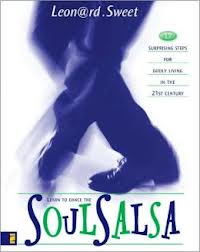 Starbucks (Waterbrook; $13.99) is a playful and helpful introduction to the tangible shifts in contemporary culture, and what the church might learn if we, too, are going to be effective vessels, bringing the epic good news to bear in ways that compute to postmodern people who appreciate the “experience economy.” Books like Aqua Church 2.0: Piloting Your Church in Today’s Fluid Culture (Cook; $14.99) show us how to set out in these postmodern waters and SoulSalsa: 17 Surprising Steps for Godly Living in the 21st Century (Zondervan; $12.99) tells us how to live it out in our own lives. I like both of those books a lot.
Starbucks (Waterbrook; $13.99) is a playful and helpful introduction to the tangible shifts in contemporary culture, and what the church might learn if we, too, are going to be effective vessels, bringing the epic good news to bear in ways that compute to postmodern people who appreciate the “experience economy.” Books like Aqua Church 2.0: Piloting Your Church in Today’s Fluid Culture (Cook; $14.99) show us how to set out in these postmodern waters and SoulSalsa: 17 Surprising Steps for Godly Living in the 21st Century (Zondervan; $12.99) tells us how to live it out in our own lives. I like both of those books a lot.
It is axiomatic for Sweet that God loves this world, that we are called to be culturally-savvy ambassadors, understanding the signs of the times, even this TGIF culture (ahh, in Sweet-speak that’s Twitter, Google, iphone, and Facebook. See last year’s Viral: How Social Networking is Poised for Revival [Waterbrook; $14.99] for an exploration. I reviewed it briefly, here.) Even if is not our “native tongue” (as it is for Gen Xers and Millennials and today’s children) our churches must, like good missionaries, be astute in the ethos and folkways and values and language and technologies and aesthetics of North American culture. As immigrants to this brave new world (unless your young) we weren’t born here; we have to learn the language.
IN BUT NOT OF?
Some might (and I have) criticized Len for not adequately sounding the counter-cultural, “in but not of” theme of being “non-conformed” to the ways of the surrounding culture. (See the last few books by David Wells, such as his new and very moving God in the Whirlwind: How the Holy-Love of God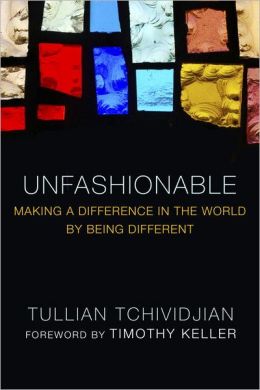 Reorients Our World or his weighty jeremiad Above All Earthly Pow’rs: Christ in a Postmodern World, or, perhaps more lively and useful, Unfashionable: Making a Difference in the World by Being Different by Tullian Tchividjian for rebuking critique of those who bend over backwards to accommodate faith to the ways of the world.) Still, Sweet’s basic intuition and his major theme and his insistent questions are, I believe, right on. God loves the world; why don’t we? God entered the world in the incarnation; why don’t we? God has placed us in this time and place; why don’t we learn the language? God in Christ makes us more human, not less; why don’t we experience healthy, abundant life?
Reorients Our World or his weighty jeremiad Above All Earthly Pow’rs: Christ in a Postmodern World, or, perhaps more lively and useful, Unfashionable: Making a Difference in the World by Being Different by Tullian Tchividjian for rebuking critique of those who bend over backwards to accommodate faith to the ways of the world.) Still, Sweet’s basic intuition and his major theme and his insistent questions are, I believe, right on. God loves the world; why don’t we? God entered the world in the incarnation; why don’t we? God has placed us in this time and place; why don’t we learn the language? God in Christ makes us more human, not less; why don’t we experience healthy, abundant life?
God sent into the world a real person, after all – God With Us – not a bloodless proposition, not even a “gospel-centered” one, and the Christian faith is more about real relationships restored in Christ then assenting to abstract truths, more about the person of Christ than a proposition about Christ. Consider the title of this important book Sweet wrote just a few years ago: What Matters Most: How We Got the Point but Missed the Person (Waterbrook; $15.99.) What a cry of the heart for many churches, content to, as he puts it, “wade in the shallows of belief (rather than) plunge into the depths of faith.”
Other recent books of Sweet’s like I Am a Follower: The Way, Truth, and Life of Following Jesus (Nelson; $15.99), Jesus: A Theography (Nelson $19.99) and Jesus Manifesto: Restoring the Supremacy and Sovereignty of Jesus Christ (Nelson; $14.99) or Nudge: Awakening Each Other to the God Who’s Already There (Cook; $19.99) show that he’s no hipster wanting to dumb down orthodox faith for faddishly cool God-talk nor a historic liberal Protestant eroding a Biblical worldview with a critical lens on all things historic. He’s a postmodern evangelical prophet inviting us back to robust faith and whole-life discipleship, embodying God’s ways thoughtfully and creatively in the 21st century world (or, as he often says, preparing for the 22nd century world – kids being born today may well live into the 22nd century!)
Jesus (Nelson; $15.99), Jesus: A Theography (Nelson $19.99) and Jesus Manifesto: Restoring the Supremacy and Sovereignty of Jesus Christ (Nelson; $14.99) or Nudge: Awakening Each Other to the God Who’s Already There (Cook; $19.99) show that he’s no hipster wanting to dumb down orthodox faith for faddishly cool God-talk nor a historic liberal Protestant eroding a Biblical worldview with a critical lens on all things historic. He’s a postmodern evangelical prophet inviting us back to robust faith and whole-life discipleship, embodying God’s ways thoughtfully and creatively in the 21st century world (or, as he often says, preparing for the 22nd century world – kids being born today may well live into the 22nd century!)
Rev. Sweet is a United Methodist minister and professor, working both at Drew University and George Fox University (in their DMin program.) His energetic teaching, conference talks, and interactive workshops on doing ancient-future ministry in this hot-wired world are legendary and even those that are not fully convinced that his big-picture, scatter-shot, all-over-the-map visionary proposals are “doable” or wise, he is inspiring and provocative and a valuable voice for the church reforming. Unless he really rubs you the wrong way – and he does frustrate some, as a presenter and as a writer, I suppose – he is, in my view, a wonder to behold. At his best he is a force of nature. You should hear him, meet him, if you have a chance, but certainly, you should read him. He is one of the most prolific, interesting, and, I think, important writers of our generation. As I often say, you will learn a lot about a lot by dipping in to any of his books. The footnotes alone are worth the price of admission.
S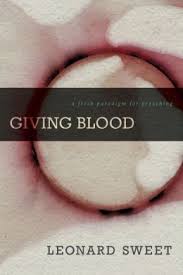 weet’s mother was a Pilgrim Holiness preacher (driven from a few of her churches because she insisted on wearing jewelry — her wedding band, and because his father owned a TV.) In his new book, Giving Blood: A Fresh Paradigm for Preaching (Zondervan; $22.99) he tells that she would sometimes sigh in the course of hearing a passionless sermon that the preacher wasn’t “leaving any blood on the pulpit.” Sweet, who has written nicely about his Wesleyan heritage and his standing in the United Methodist church — his tribe, as he puts it — reads and quotes very widely. He affectionately cites Spurgeon and Calvin, Fred Buechner and Sam Proctor, Barbara Brown Taylor and Rowan Williams. Like his mother, he is a soulful, passionate preacher, eager to draw people to radical faith.
weet’s mother was a Pilgrim Holiness preacher (driven from a few of her churches because she insisted on wearing jewelry — her wedding band, and because his father owned a TV.) In his new book, Giving Blood: A Fresh Paradigm for Preaching (Zondervan; $22.99) he tells that she would sometimes sigh in the course of hearing a passionless sermon that the preacher wasn’t “leaving any blood on the pulpit.” Sweet, who has written nicely about his Wesleyan heritage and his standing in the United Methodist church — his tribe, as he puts it — reads and quotes very widely. He affectionately cites Spurgeon and Calvin, Fred Buechner and Sam Proctor, Barbara Brown Taylor and Rowan Williams. Like his mother, he is a soulful, passionate preacher, eager to draw people to radical faith.
He used to edit a popular homiletics journal (and started the first on-line open source preaching resource, wikiletics.com) and he regularly teaches preachers and liturgists about vibrant, culturally-contextualized, worship. This new book is about leaving blood on the pulpit. I don’t know if his mother would recognize it, but there is affinity. At heart he wants to give of himself to preach about the blood of the lamb. Postmodern, technology-obsessed, 21st century aficionado that he may be, he wants to preach the old, old story, the gospel story. His is no Christ-less, bloodless faith and it necessarily gets messy.
Which leads me to the first thing to say about this amazing work.
It is about the preachers blood and it is about the blood of Christ and, somewhat, about your blood and mine. It frustrates some and is a life-line for others, but, as he almost always does, he plays with a metaphor, works an image, shifts back and forth between multiple meanings. In this case, he reports about up-to-date scientific blood research (yes, about cells and transfusions and genetic codes and all the rest) and also reminds us of ancient mythic stories about blood and blood sacrifices. (His linking of the pagan Persian Mithras practices of being washed in the blood of the slit throat of a sacrificial bull and the bull markets of modern pagans on Wall Street took my breath away – wow, did he say that? You’ll leave some blood on the tracks if you preach like that!) But just when your head is spinning with fascinating stuff about platelets and plasma he introduces and runs with teachings about blood in the Bible.
transfusions and genetic codes and all the rest) and also reminds us of ancient mythic stories about blood and blood sacrifices. (His linking of the pagan Persian Mithras practices of being washed in the blood of the slit throat of a sacrificial bull and the bull markets of modern pagans on Wall Street took my breath away – wow, did he say that? You’ll leave some blood on the tracks if you preach like that!) But just when your head is spinning with fascinating stuff about platelets and plasma he introduces and runs with teachings about blood in the Bible.
As I said, one could underline lines and lines of this fascinating book. It is learned and eloquent and jam-packed with ideas and inspiration. It is a slight irritation that an editor didn’t reign in his ADD a bit – some pages hold five different ideas, it seems (and there are glaring non sequiturs that may work live, but are jarring on the page.) But, still, even these are often amazing and mostly helpful and sometimes very beautifully crafted. Like the design of the book itself, this is a solid and handsome work, well-designed and layered with information and story and vision. And, man, does he work the blood metaphor.
Sweet said it was the hardest book he has written, and it has taken him longer, much longer, than any of his others. He’s a gifted writer with a photographic memory, so I gather that writing hasn’t been too difficult for him. (He’s released nearly 50 titles, after all.) In this one, at least, he has followed the advice of sportswriter Red Smith (probably not Hemingway) who famously noted how easy it is to be a writer: “You simply sit down at the typewriter, open your veins and bleed.”
Consequently, I do think Giving Blood is one of the essential Leonard Sweet books.
A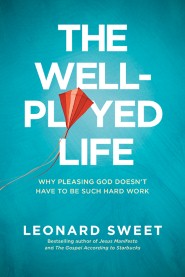 s I noted in a BookNotes post a few weeks ago, I love his other new book, an energetic new paperback on play and grace and creativity, The Well-Played Life: Why Pleasing God Doesn’t have to Be Such Hard Work (Tyndale Momentum; $15.99.) It is about the importance and freedom of play and how to live a more God-guided, creative, liberated life, of course, but more, a rumination on our “works-oriented culture” which fails to appreciate grace. One doesn’t “work” a piano, he tells us, one plays it. Perhaps we shouldn’t “work” on our marriages or at our jobs, but play at them. It’s a good metaphor, messing with the Protestant work ethic, and the book brings several important insights. He covers a lot of ground in that book, some chapters long, some short, with (of course) lots of stories and lots of historical examples and illustrations to clarity the urgency of this particular crisis — our workaholism, and what he calls our BMB Syndrome (“Behold Me Busy.”) I finished it just recently and started to write about it, and then came Giving Blood.
s I noted in a BookNotes post a few weeks ago, I love his other new book, an energetic new paperback on play and grace and creativity, The Well-Played Life: Why Pleasing God Doesn’t have to Be Such Hard Work (Tyndale Momentum; $15.99.) It is about the importance and freedom of play and how to live a more God-guided, creative, liberated life, of course, but more, a rumination on our “works-oriented culture” which fails to appreciate grace. One doesn’t “work” a piano, he tells us, one plays it. Perhaps we shouldn’t “work” on our marriages or at our jobs, but play at them. It’s a good metaphor, messing with the Protestant work ethic, and the book brings several important insights. He covers a lot of ground in that book, some chapters long, some short, with (of course) lots of stories and lots of historical examples and illustrations to clarity the urgency of this particular crisis — our workaholism, and what he calls our BMB Syndrome (“Behold Me Busy.”) I finished it just recently and started to write about it, and then came Giving Blood.
And any day now we’re going to see the brand, brand new book about missional social action, Me to We: God’s New Social Gospel (Abingdon Press; $17.99.) Sweet, you’re killing me. I can’t keep up.
GOOD FOR EVERYONE – NOT JUST PREACHERS
Giving Blood: A Fresh Paradigm, though, is a major work. Trust me on this – it is a bit counter-intuitive, which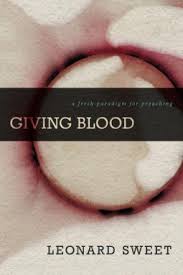 maybe any review of Sweet should be – but although it is about preaching, for preachers, it could be profitably read by anyone. If you care about culture, about being a better communicator, if you care about how the Bible informs life (and worship) if you long for your church to be renewed, and if you happen to care about preaching (and what Christian doesn’t?) this is a great book to have. I would be thrilled to know of lay people reading it together, or a study group with pastors and their people. Sure, ministeriums, clergy colleague groups, and pastor’s book clubs should read it. Give it to your own minister, with a smile and a dare. But, again, preacher or not, whether you do public speaking or not – heck, whether you are a Christian or not – this is a great book to enjoy and I’m sure you will learn a lot about a lot. Not the least of which is about the life-giving power of the blood of the crucified One.
maybe any review of Sweet should be – but although it is about preaching, for preachers, it could be profitably read by anyone. If you care about culture, about being a better communicator, if you care about how the Bible informs life (and worship) if you long for your church to be renewed, and if you happen to care about preaching (and what Christian doesn’t?) this is a great book to have. I would be thrilled to know of lay people reading it together, or a study group with pastors and their people. Sure, ministeriums, clergy colleague groups, and pastor’s book clubs should read it. Give it to your own minister, with a smile and a dare. But, again, preacher or not, whether you do public speaking or not – heck, whether you are a Christian or not – this is a great book to enjoy and I’m sure you will learn a lot about a lot. Not the least of which is about the life-giving power of the blood of the crucified One.
If it means anything to you (and it will for many BookNotes readers) Sweet says his two favorite preachers are Frederick Buechner and Calvin Miller. (And, in a story so typical of Sweet the consummate story-teller, he tells how Calvin Miller’s last sermon, beautifully delivered shortly before he died, he cited Frederick Buechner.)
POINTLESS?
And, if it means anything to you (and it should) Sweet insists that the modern worldview, with propositions and pages and points, created what many think of as the classic style of homiletics – pointed sermons, here of late the 3-point sermon. (I heard him joke years ago that in the postmodern age, sermons must be story laden, narrative and imagistic; “Sweet, your sermons are pointless,” his wife quipped. Ha.)
WHAT’S A NARRAPHOR?
In this book he has coined a new phrase (I think, by the way, that it was Sweet who introduced to church folks the phrase coined by a VISA exec, “glocal”) and this one, too, may take a bit to catch on, but it is interesting: narraphor. That is a narrative about a metaphor. (Or is it a metaphor based in a narrative?) He works that out, too — wow!
His EPIC preaching style for the TGIF world (see above) demands a study of semiotics. This isn’t dry or complicated, but he does walk us through some rocky roads, studying communication theory from Charles Sanders Pierce to Paul Ricoeur to George Lakoff. Serious scholars will appreciate that he understands this stuff and, I hope, will be glad he popularizes it for ordinary preachers and speakers and teachers. Sweet is walking through some of the same thick brush as James K.A. Smith (talk about an important evangelically postmodern writer!) but with a different tone (he’s funny and breezy and can’t stop himself from the punditry.)
Maybe making up words like narraphor is a bit gimmicky for your no-nonsense tastes, and, as I’ve said, he annoys some readers. But I implore you, get over it. Give this a try.
DRAWING ON THE BEST
And he does spend much time, in almost every chapter, quoting the very best writers and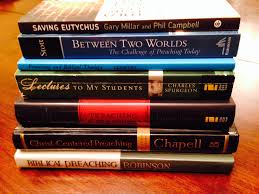 practitioners of the art of preaching. From the old guys (Aristotle, Aquinas, Calvin, Wesley, Spurgeon) to important homileticians like Fred Craddock, Tom Long, Eugene Lowry, Howard Hendricks, Haddon Robinson and great preachers like Barbara Brown Taylor, Bryan Chappell, Tim Keller, Fleming Rutledge. He is in conversation with the African American tradition, emergent folks, Reformed teachers like Sidney Greidanus, mainline Protestant preaching teachers like Paul Scott Wilson and David Schafler, and appreciates the exquisite Dominican Simon Tugwell. What a delight to see C.S. Lewis’ friend Austin Farrer show up, and how interesting when he disagrees with John Piper about the role of humor in the pulpit. How many books have interesting quotes from preachers as diverse as Jonathan Edwards and Thomas Troeger? How I wish more of our friends valued the work of Louie Giglio and Walter Brueggemann.
practitioners of the art of preaching. From the old guys (Aristotle, Aquinas, Calvin, Wesley, Spurgeon) to important homileticians like Fred Craddock, Tom Long, Eugene Lowry, Howard Hendricks, Haddon Robinson and great preachers like Barbara Brown Taylor, Bryan Chappell, Tim Keller, Fleming Rutledge. He is in conversation with the African American tradition, emergent folks, Reformed teachers like Sidney Greidanus, mainline Protestant preaching teachers like Paul Scott Wilson and David Schafler, and appreciates the exquisite Dominican Simon Tugwell. What a delight to see C.S. Lewis’ friend Austin Farrer show up, and how interesting when he disagrees with John Piper about the role of humor in the pulpit. How many books have interesting quotes from preachers as diverse as Jonathan Edwards and Thomas Troeger? How I wish more of our friends valued the work of Louie Giglio and Walter Brueggemann.
Most of this is not heavy or tedious — he uses quotes well, and draws on amazing insights from throughout history. He is a splendid oral communicator, after all, and knows his way around good sentences and good storytelling.
POETS AND ARTISTS
As always, he draws on novelists, poets, journalists, artists. What fun to see a line from Nicos Kazantzakis and a quote from Luci Shaw, a line from a song by Keith Green and an interview with Brian Eno. And, thank goodness, a citation from Annie Dillard’s The Writing Life. And did I mention Dr. Seuss? He wisely quotes Dr. Seuss.
I hope my naming these wordsmiths isn’t off-putting to you; it is an invitation to realize how much thought and work and blood and sweat Sweet has put into bringing this big book together. And how fun and interesting it is to read.
But be prepared.
YOU’LL SHED BLOOD TOO
Have you ever seen those automatic machines that shoot baseballs to batters. You’ve seen the comic scenes in movies where it is set too fast, and the curve balls come flying, flying, flying at you, nonstop, dangerously so, faster and faster? Yeah, this is like that. You’ll have given blood by the time you’re through the first two chapters.
But, happily, this isn’t that painful. It is exciting, stimulating, enjoyable, even, 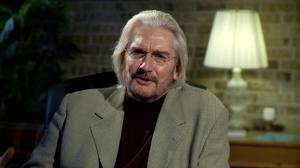 learning so much, being guided through fascinating theories, told wonderful stories, learning big ideas and small details, getting good quotes and good illustrations. I’m telling you, bloodied or not, you will get your money’s worth entering the cage with Sweet.
learning so much, being guided through fascinating theories, told wonderful stories, learning big ideas and small details, getting good quotes and good illustrations. I’m telling you, bloodied or not, you will get your money’s worth entering the cage with Sweet.
GETS VERY PRACTICAL
Just so you know, although the early part of the book invites us to “making Narraphors EPIC” and offers “interactives” (application exercises) and explores how Scriptures must guide us in our deduction, induction, abduction, and transduction, the book soon gets very practical. He uses cool lingo “bicameral preaching” and “organic architecture” but sometimes he is bluntly clear, as in the chapter called “Blood and Guts: Passion.”
The whole fourth part is about “going live” and looks at blood supply, blood transfusions, blood donors (which is congregational interplay) and examines sacramentality (“blood vessels”) as well as insights and ideas about good delivery.
Near the end, he looks at what other authors might call the dangers or obstacles faced by preachers. In the section called “AB-” (get it?) he deals with negatives: blood clots (“preachers block”), blood feuds and blood baths (that’s about handling criticism), blood hematoma — a moving section about avoiding bruising our listeners. The chapter called “Blood Pressure” is about the nervous preacher and there is a fascinating piece cleverly called “blood doping and bad blood” which is about “false props and bad leads.” “Blood Poisoning” is about dealing with heresies.
“Red-Blooded Realties” looks at the preacher’s humility and humanity, “Blood Ties” is subtitled “Learning from Peers and Relationships with Colleagues” and he even has a section on interpreting effect and response called “Blood Testing.”
I challenge you to find a more creatively written book on the art of preaching, and it may even be the most thorough. I am surprised that most preachers don’t continually hone their craft and homiletics books aren’t big sellers (except as seminary textbooks.) Maybe if more were like this, they’d be more popular.
As I said before, it is so interesting, even those of us who just listen to sermons and are friends with preachers will enjoy it and benefit greatly.
Notice — again — that it offers insights about the gospel itself and insights about how to communicate in these times; it is a creative study of true faith in our image-based, google world. How do we do church in a world like ours? How do we preach the Word faithfully and fruitfully? What do we want our preachers to be, to say and to do?
Sweet offers good stories of those who have grappled with the implications of the Kingdom and he offers stories of those who have preached it well. His incarnational theology doesn’t demand that he separate this into discreet sections — reflections on the message and the messenger – but you can discern these two great themes: what is the gospel and how do we get it spoken well to the gathered people of God? How do we read the world and read the Word. He draws on John Stott a bit, who said preachers are “between two worlds.”
Of course, Sweet will step on a few toes, rattle a few cages, as they say, tweaking those with unhelpful theologies and unbiblical views and outdated customs and sloppy efforts, but he will also offer good courage to those who are eager to bring renewal and hope to their bloodless churches. Giving Blood will help you give blood.
I like the quote by Heather Murray Elkins, Professor of Worship, Preaching and the Arts at Drew University: “Label this book ‘O Negative.’ It is rare and urgently needed. Good for all types.”

DISCOUNT
ANY ITEM MENTIONED
20% off
order here
takes you to the secure Hearts & Minds order form page
just tell us what you want
inquire here
if you have questions or need more information
just ask us what you want to know
Hearts & Minds 234 East Main Street Dallastown, PA 17313 717-246-3333

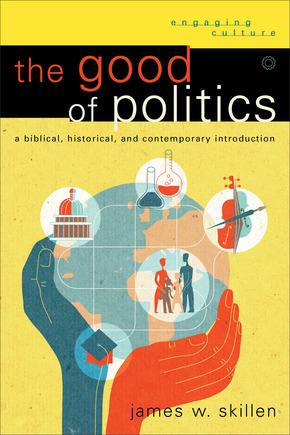 inbox yesterday. (And if you don’t subscribe, you can do so at the website.)
inbox yesterday. (And if you don’t subscribe, you can do so at the website.) 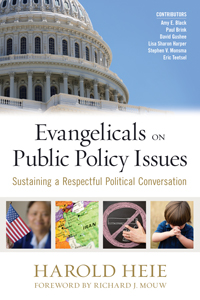
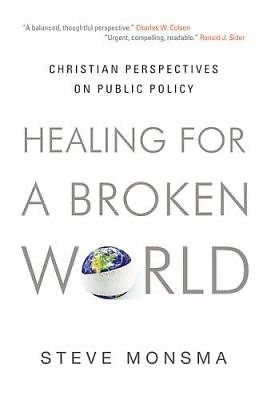
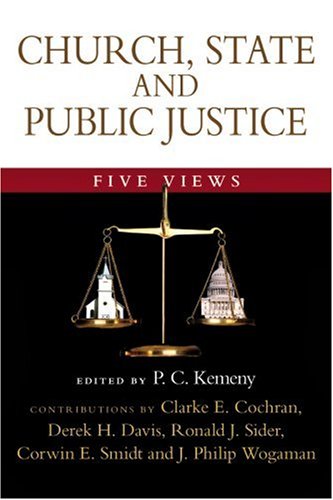
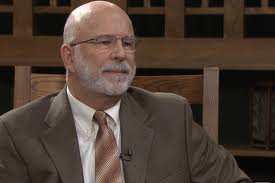
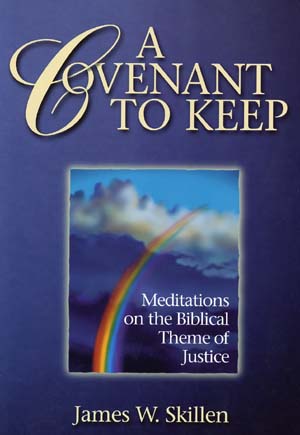
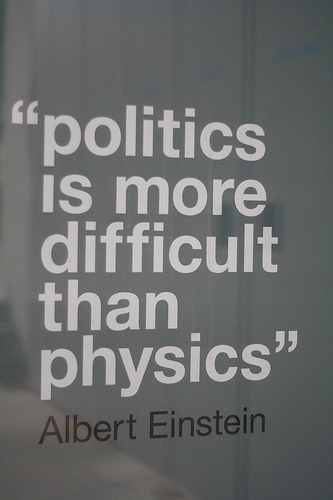
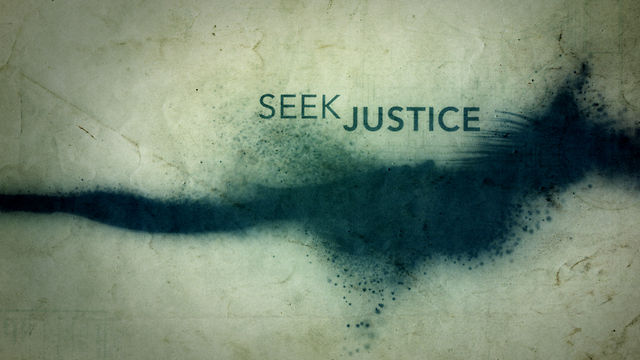
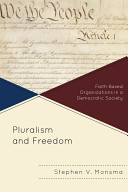
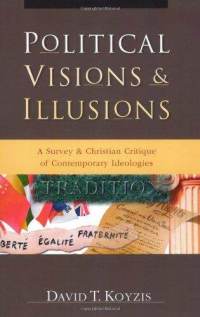
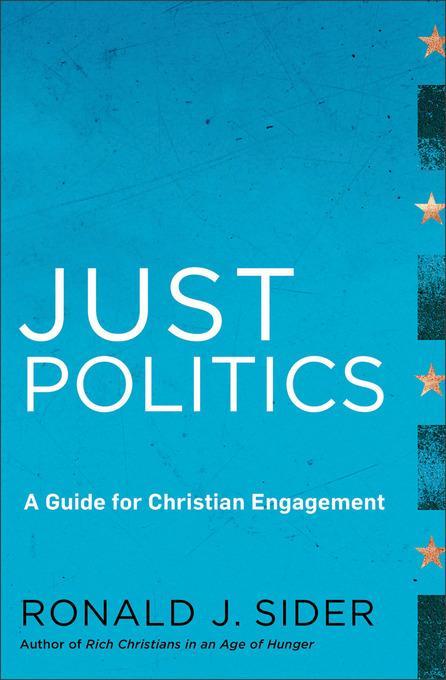
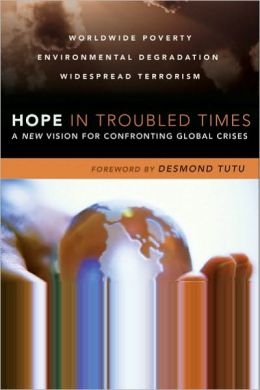
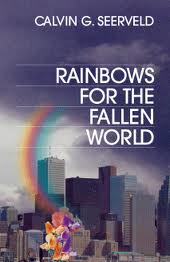
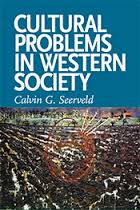 These eight chapters may seem to have emerged from an unusual setting – these were lectures delivered to labor unionists and artists in Europe (funded by the European Commission and the Evangelische Zendings Alliantie.) Seerveld here is helping artists and activists to think deeply about pluralism, multi-culturalism, confessional and ethnic diversity, xenophobia, and the importance of enriched cultural conversations about our life together in our troubled nations.
These eight chapters may seem to have emerged from an unusual setting – these were lectures delivered to labor unionists and artists in Europe (funded by the European Commission and the Evangelische Zendings Alliantie.) Seerveld here is helping artists and activists to think deeply about pluralism, multi-culturalism, confessional and ethnic diversity, xenophobia, and the importance of enriched cultural conversations about our life together in our troubled nations. 